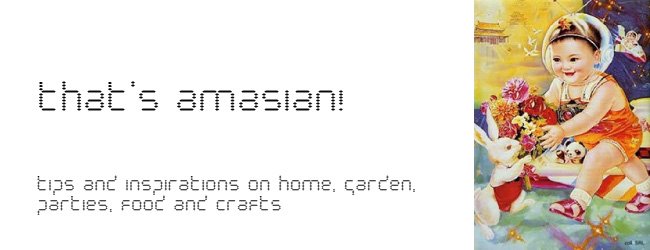
I have a Chinese mother--and I am a Chinese mother. Am I superior, as Amy Chua posits in her article in the Wall St. Journal, "Why Chinese Mothers are Superior?" Well, seeing as my son is only two, I can't attest to my parenting skills yet. Whenever my mom would complain that I wasn't studying hard enough and wouldn't get into a good college, (or even ask why I got an A, not an A+) I would compare myself to the absolute worst alternative. "Well, at least I'm not a teenage prostitute!" or "At least I'm not a drug addict lying in a ditch somewhere!" And I'm proud to say I'm still not either of those. Instead, I work at a nonprofit environmental communications firm, my husband of seven years works at a private school. We own our own home, have a cat and and an adorable bilingual toddler. I'm well-adjusted and get along with my parents and my sisters.
So did my mom's Chinese parenting technique work on me? I'd say yes. But there's no telling how I'd turn out if my childhood weren't punctuated with a healthy balance of Americanization.
I grew up in a typical middle class Chinese American household in Western Massachusetts, with three sisters. While my childhood did follow some of Amy Chua's prescription: private violin and piano lessons, outrage over a B, chastising over one's imperfect looks or manners and a clear, outlined expectation to be "The BEST" at something. But my parents also in large part let us sisters entertain ourselves. When we were young and the SATs weren't looming, we'd spend large parts of our days acting out elaborative imaginative scenarios with no toys, playing outside, climbing trees and collecting worms and rocks, swimming in lakes and the town pool, and taking home huge stacks of children's books from the library, which our parents dutifully read to us. When we grew older, we all ran cross country and track, meaning we'd come home, stinking of sneakers and locker room and huddle over the dinner table, and completely house chicken wings and Oreos as an after school snack. Never gaining any weight, though (we were Asian, after all). My dad was a big cheerleader of our sports although my mom never thought it was appropriate for a girl to exert herself so much.
My parents came from much more impoverished upbringings, and being in the U.S. offered a new hope for us American kids. Studying hard and doing well was a privilege for my dad--not everyone in his family had the option to study all the way through to their Ph.D. Others, like my uncle, had to quit school to provide for the family--with many hungry mouths to feed in post-World War China.
Chua's notion of working hard at something until you're so good at it it's fun is one route. But who's to say that the fun social skills one develops when they're a teenager aren't useful for their future success? After all, it was the popular, funny, eloquent, sociable kids who got elected class president, and that looks just as good if not better on a college application than principal second in the regional junior orchestra.
Another reason Chinese kids may be more successful that Chua doesn't mention is that these households are more likely to have a grandparent in the home. In Chinese households, living with one's elders is a cultural norm, whereas Americans are more likely to embrace retirement and nursing homes. When a child has a grandparent in the home, they get used to moving at a slower pace, and naturally develop a sense of patience. Grandparents can also help children with homework after school while parents are still working, and provide valuable perspective on frugality and hard work. Just the patience skill alone can be hugely valuable in elementary school education, when a student's achievement can grow leaps and bounds simply by sitting still, listening to the teacher and following instructions. Asian kids aren't necessarily smarter, they may just be better concentrators.
But these Asian kids who get great grades and go to good colleges, and get offered jobs at top companies, are they earning as much as their white counterparts? Studies say no. Maybe it's that deep-seated xenophobia that has afflicted Americans since the 19th century. Or maybe it's that these professionals are still a little socially awkward--after all those years of missing out on sleepovers and school plays.
I do agree with Chua that Chinese mothers are right in expecting strength from their children instead of fragility. If parents don't believe in their children, who will? But expecting strength also means seeing strength in a variety of different talents--not pushing skills that are seen as most likely to result in a high salary career. And maybe American parents would do well to expect the highest aptitude, rather than 'just good enough.' The A+ is there for a reason, after all.
I hope to raise my toddler with healthy balances of an American and Chinese upbringing. Hopefully if/when he first strikes that awful note on his half size violin, I'll know what to say--whether it's "great job" or "work harder!"
